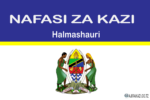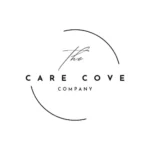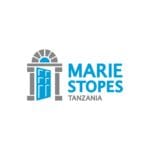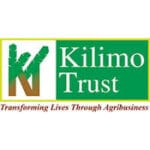AboutMathematical Literacy
Mathematical Literacy provides learners with an awareness and understanding of the role that mathematics plays in the modern world. Mathematical Literacy is a subject driven by life-related applications of mathematics. It enables learners to develop the ability and confidence to think numerically and spatially in order to interpret and critically analyse everyday situations and to solve problems.
PURPOSE
South Africa has come from a past in which poor quality or lack of education resulted in very low levels of literacy and numeracy in our adult population. International studies have shown that South African learners fare very poorly in mathematical literacy tests when compared to counterparts in other developed and developing countries. Learners who could not do well mathematically in General Education and Training usually stopped studying Mathematics, thus contributing to a perpetuation of high levels of innumeracy.
The inclusion of Mathematical Literacy as a fundamental subject in the Further Education and Training curriculum will ensure that our citizens of the future are highly numerate consumers of mathematics. In the teaching and learning of Mathematical Literacy, learners will be provided with opportunities to engage with real- life problems in different contexts, and so to consolidate and extend basic mathematical skills. Thus, Mathematical Literacy will result in the ability to understand mathematical terminology and to make sense of numerical and spatial information communicated in tables, graphs, diagrams and texts. Furthermore, Mathematical Literacy will develop the use of basic mathematical skills in critically analysing situations and creatively solving everyday problems.
In everyday life a person is continually faced with mathematical demands which the adolescent and adult should be in a position to handle with confidence. These demands frequently relate to financial issues such as hire-purchase, mortgage bonds, and investments. There are others, however, such as the ability to read a map, follow timetables, estimate and calculate areas and volumes, and understand house plans and sewing patterns. Situations, such as in cooking and the use of medicine, requiring the efficient use of ratio and proportion are encountered on a daily basis. Here, mathematical literacy is required by a self-managing person.
The workplace requires the use of fundamental numerical and spatial skills in order to efficiently meet the demands of the job. To benefit from specialised training for the workplace, a flexible understanding of mathematical principles is often necessary. This numeracy must enable the person to, for example, deal with work-related formulae, read statistical charts, deal with schedules and understand instructions involving numerical components. Such numeracy will enable the person to be a contributing worker.
To be a participating citizen in a developing democracy, it is essential that the adolescent and adult have acquired a critical stance with regard to mathematical arguments presented in the media and other platforms. The concerned citizen needs to be aware that statistics can often be used to support opposing arguments, for example, for or against the use of an ecologically sensitive stretch of land for mining purposes. In the information age, the power of numbers and mathematical ways of thinking often shape policy. Unless citizens appreciate this, they will not be in a position to use their vote appropriately.
The Further Education and Training subject, Mathematical Literacy, should enable the learner to become a self-managing person, a contributing worker and a participating citizen in a developing democracy.
Mathematical Literacy will ensure a broadening of the education of the learner which is suited to the modern world.
Mathematical Literacy contributes to the attainment of the Critical and Developmental Outcomes in that it enables learners to:
- use mathematical process skills to identify, pose and solve problems creatively and critically;
- work collaboratively in teams and groups to enhance mathematical understanding;
- organise, interpret and manage authentic activities in substantial mathematical ways that demonstrate responsibility and sensitivity to personal and broader societal concerns;
- collect, analyse and organise quantitative data to evaluate and critique conclusions;
- communicate appropriately by using descriptions in words, graphs, symbols, tables and diagrams;
- use mathematical literacy in a critical and effective manner to ensure that science and technology are applied responsibly to the environment and to the health of others;
- demonstrate that a knowledge of mathematics assists in understanding the interrelatedness of systems and how they affect each other;
- be prepared to use a variety of individual and co-operative strategies in learning mathematics;
- engage responsibly with quantitative arguments relating to local, national and global issues;
- be sensitive to the aesthetic value of mathematics;
- explore the importance of mathematical literacy for career opportunities;
- realise that mathematical literacy contributes to entrepreneurial success.
SCOPE
All learners in the Further Education and Training band increasingly become involved in issues related to their lives which involve mathematics, inter alia, in working towards being able to:
- use numbers with understanding to solve real-life problems in different contexts including the social, personal and financial;
- use mathematically-acquired skills to perform with understanding financially-related calculations involving personal, provincial and national budgets;
- model relevant situations using suitable functions and graphical representation to solve related problems;
- describe, represent and analyse shape and space in two dimensions and three dimensions using geometrical skills;
- engage critically with the handling of data (statistics and chance), especially in the manner in which these
- are encountered in the media and in presenting arguments;
- use computational tools competently (a scientific calculator is taken as the minimum).
EDUCATIONAL AND CAREER LINKS
The learning achieved in Mathematics in the General Education and Training band provides a base from which to proceed to the demands of Mathematical Literacy in the Further Education and Training band. The essentials of numeracy are taken further by working in contexts which become increasingly relevant. The engagement with space and shape becomes more practical. The methods and uses of statistics and chance are
dealt with in greater depth. Learners have to deal with more complex financial issues which directly affect their lives.
The Learning Outcomes of Mathematical Literacy are designed to enable learners passing through the Further Education and Training band to handle with confidence the mathematics that affects their lives and so be appropriately educated for the modern world. They will be able to proceed with learnerships in career pathways that require Mathematical Literacy at the relevant National Qualifications Framework (NQF) levels.
Students proceeding to Higher Education institutions will have acquired a mathematical literacy that will enable them to deal effectively with mathematically-related requirements in disciplines such as the social and life sciences. Mathematical Literacy should not be taken by those learners who intend to study disciplines which are mathematically based, such as the natural sciences or engineering.
LEARNING OUTCOMES
Learning Outcome 1: Number and Operations In Context
The learner is able to use knowledge of numbers and their relationships to investigate a range of different contexts which include financial aspects of personal, business and national issues.
The focus of this Learning Outcome is on the investigation and solution of problems that require a sound understanding of numbers and their use in calculations, especially in financial contexts, ranging from personal to international issues. Applications in increasingly complex contexts provide opportunities to extend and consolidate calculation skills. Learners should develop sound estimation and mental calculation skills and a facility in using equivalent forms to simplify calculations. Proper conceptual understanding will be required to enable learners to use calculators appropriately and effectively.
Learning Outcome 2: Functional Relationships
The learner is able to recognise, interpret, describe and represent various functional relationships to solve problems in real and simulated contexts.
Functional relationships pervade our society. This Learning Outcome is designed to give learners opportunities to investigate and make sense of such relationships where they arise in the context of other subjects, work or life-related situations. Learners will reflect on relationships between variables and use various means to determine values for variables when solving problems. Rate of change is emphasised as a useful way to describe the behaviour of functions. Context-free algebraic manipulations are not expected. Algebraic manipulation skills should rather be developed as needed in solving problems.
Learning Outcome 3: Space, Shape and Measurement
The learner is able to measure using appropriate instruments, to estimate and calculate physical quantities, and to interpret, describe and represent properties of and relationships between 2-dimensional shapes and 3- dimensional objects in a variety of orientations and positions.
This Learning Outcome focuses on the development of spatial understanding and geometric skills through engagement with suitable contexts. This includes visualisation and knowledge of transformations. A variety of contexts should be employed to represent spatial aspects through diagrams and models, and to analyse shapes geometrically in order to solve problems and investigate situations. Numerous applications are available in design, art, geography and other fields. Such applications develop measurement and modelling skills as well as appreciation for aesthetic form.
Learning Outcome 4: Data Handling
The learner is able to collect, summarise, display and analyse data and to apply knowledge of statistics and probability to communicate, justify, predict and critically interrogate findings and draw conclusions.
This Learning Outcome focuses on the role of learners as consumers of interpretations of data. Contexts should be taken from the way data is handled in the media and used to investigate situations. Learners should have the opportunity to reflect on the meaning of different graphical representations in a way that will enable them to access unfamiliar types in future. Critical awareness of how data can be manipulated to prove opposing views should be developed. Opportunities for learner-driven investigations by gathering and analysing data should be provided. These investigations must allow learners to experience data-handling skills as useful. Where possible, learners should have the opportunity to use spreadsheets and other computer tools.












